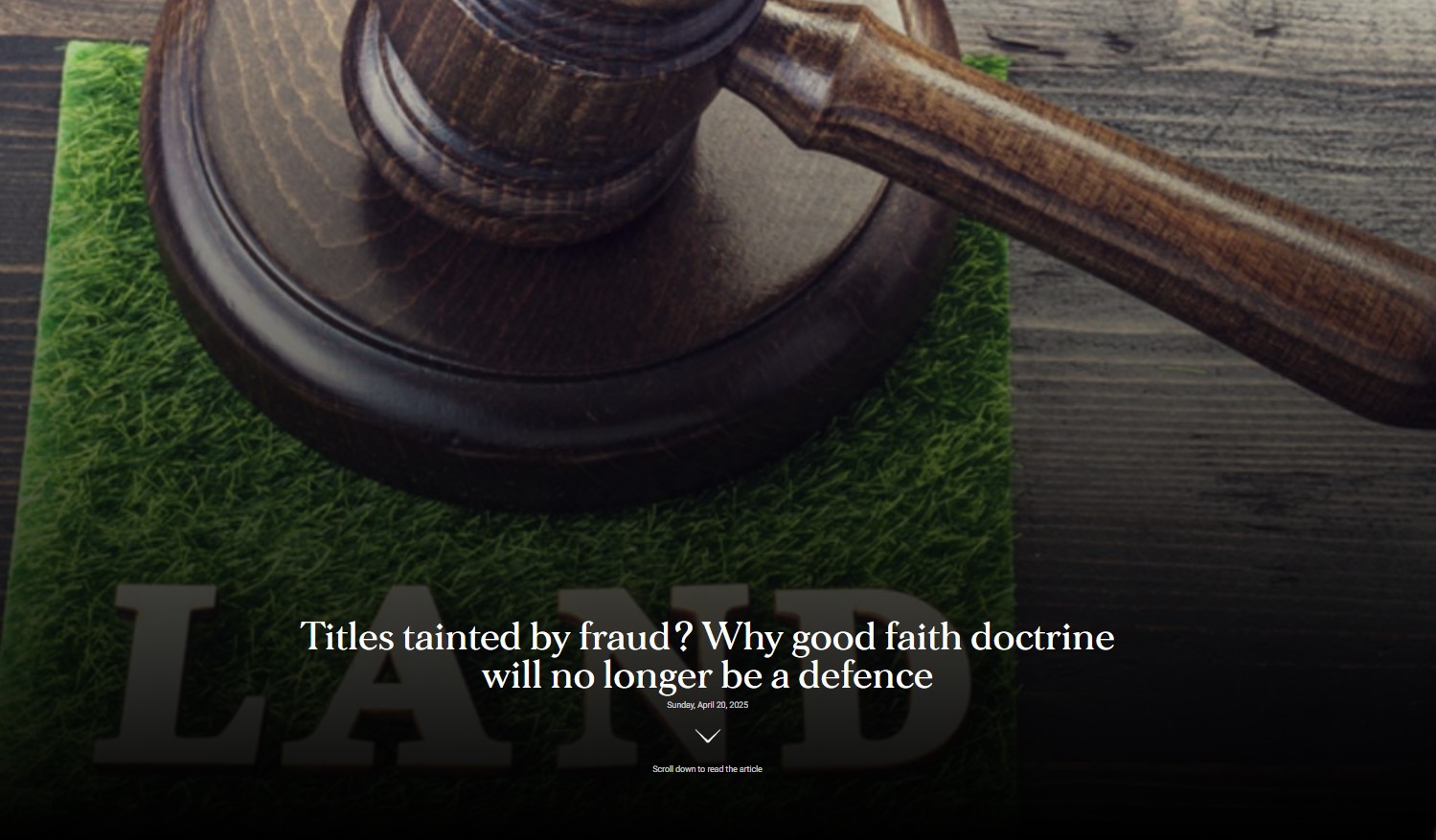By [John Kamau]
Originally Reported by Nation Africa
Land disputes have long defined Kenya’s complex legal and historical landscape. However, a recent landmark Supreme Court ruling has sent shock waves through the real estate and legal sectors by dismantling the long-standing protection offered by the doctrine of “innocent purchaser for value”, also known as good faith ownership.
This legal shift means title deeds obtained fraudulently — even if later bought innocently — can now be revoked, a decision that has far-reaching implications for landowners, investors, developers, and financial institutions.
🚫 The Death of “Good Faith” Protection
For decades, many Kenyans have relied on the assumption that once a land title is registered, it is protected by law — even if it later emerges that it was fraudulently acquired at some point in its history. This principle of indefeasibility of title was based on the good faith doctrine, shielding buyers who had no knowledge of any wrongdoing during the transaction.
However, in a recent decision, the Supreme Court of Kenya ruled that such protection cannot apply if the root of the title is tainted by fraud or illegality. The message from the court is clear: a fraudulent title remains fraudulent, no matter how many innocent hands it passes through.
⚖️ Case Background: A Title with a Dark Past
The landmark ruling stems from a long-running dispute over five acres of land in Nairobi. In this case, the original title was illegally issued by corrupt officials at the Ministry of Lands. Despite later being sold to unsuspecting buyers, the court held that the original fraud rendered the title void ab initio — meaning from the beginning.
The buyers claimed they had no idea the title was fraudulent and purchased the land in good faith, but the court ruled that public interest and legal justice must take precedence over personal loss.
“The principle of sanctity of title cannot stand where fraud and illegalities are evident in the acquisition of that title,” the judgment read.
🔍 What This Means for Landowners and Buyers
This ruling changes everything for land buyers in Kenya:
- Due diligence is no longer optional; it’s a legal necessity.
- Even if you legally bought land and registered the title, you could still lose it if it was acquired fraudulently at any point in its chain of ownership.
- Banks, Saccos, and real estate developers must reassess risk before accepting land titles as collateral or for development.
📌 Legal Implications and Expert Reactions
Land lawyers and conveyancers have expressed concern over the uncertainty the ruling introduces into the property market. The need for comprehensive land audits has never been greater, and legal practitioners now recommend conducting multi-layered background checks on title histories before finalizing land deals.
Critics warn that public land grabbers, politically connected individuals, and cartels within the land registry may face increasing litigation. While this brings hope for land justice and accountability, it also creates volatility for investors and homeowners alike.
“This ruling is both a win for justice and a wake-up call for real estate players,” said a Nairobi-based conveyancing advocate.
🏡 Real Estate Sector on High Alert
This legal precedent is likely to shake confidence among foreign and local investors. Title insurance, a concept not widely adopted in Kenya, may become more common. Additionally, developers may demand government-backed verification of all land transactions before investing in large-scale housing projects.
🛑 Can You Still Be a “Good Faith” Purchaser?
The answer is technically yes — but “good faith” is no longer a full legal defense. You must now go beyond the surface of the land title. This includes:
- Verifying the history of ownership.
- Investigating how the land was allocated originally.
- Checking for any public notices or ongoing disputes.
- Consulting with a land lawyer before making payments.
🧭 The Way Forward
This decision challenges the notion that registration equals ownership. It places new responsibility on buyers, legal professionals, and institutions to ensure that the process, not just the paperwork, is clean.
The Kenya Land Commission and Ministry of Lands are expected to implement reforms that increase transparency and streamline title verification processes. Until then, land ownership in Kenya will remain a cautious, heavily scrutinized process.
📌 Source
This article is based on a report originally published by Nation Africa on April 13, 2024.
Read the full article here: Nation Africa – Titles tainted by fraud




